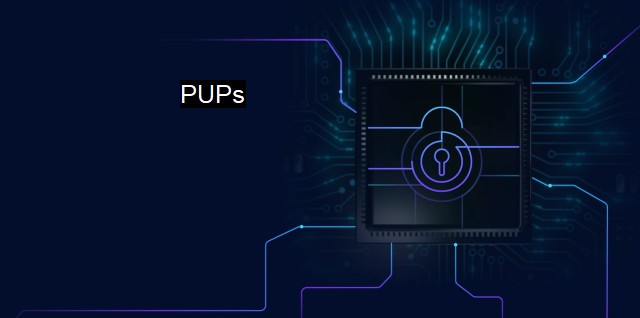What are PUPs?
Understanding and Countering Potentially Unwanted Programs (PUPs) to Avoid Malicious Cyber Attacks on PC Security
Potentially Unwanted Programs (PUPs) constitute a substantial part of cybersecurity threats in the digital world. Frequently, these consist of programs or applications that infiltrate user devices without full knowledge or clear consent from the user. PUPs derive their name from their semi-legitimate status: their installation is usually legal but relies on less-than-ethical methods to get onto a device, and their operation can be harmful, unwanted, or both.PUPs encompass a wide array of software that ranges from harmless to extremely threatening. Examples include browser toolbars with superfluous functionality, bundleware that come attached with other installed software such as free applications, and system optimizers that inaccurately report on alleged device issues to persuade the user into purchasing the 'full version.' These fall under the category of harmless to mildly irritating software that can slow down your device, display disruptive ads, or alter your web browser settings.
PUPs also include programs that venture slightly more into the malicious side of things. This category includes adware that displays constant advertising popups, spyware that covertly collects user data and shares it with third parties, and rogue security software that simulates antivirus operation to deceive users. These types of programs can not only be a nuisance, but they can also infringe on user privacy, collect sensitive data, or expose the device to harmful viruses or malware.
The fundamental issue behind PUPs is the sneaky manner in which they get installed onto systems. Most often, they are bundled with other software and get downloaded alongside these. Developers hide these additions in complex licensing agreements or convolute the installation process to coerce the user into ‘agreeing’ to install the extraneous software. In other cases, they exploit security frailties in software systems or devices to infiltrate unnoticed.
Once the PUPs get installed, they can significantly disrupt the user's comfort level through disruptive ads, slower system performance, or relentlessly tweaked system settings. Worse still, they can pose severe threats to the cybersecurity of systems and users. Since many PUPs operate by gathering and sharing data, they can violate users' privacy or create conduits for other harmful software to infiltrate the device. PUPs can also simulate legitimate antivirus software, providing a false sense of security to users while exposing their systems to more harm.
In counteracting PUPs, a robust strategy involves the active participation of the user and versatile antivirus software. Users should remain vigilant during software installation processes, especially for downloaded free software. They should thoroughly read through licensing agreements and the custom or advanced installation settings for any additional bundled software. Antivirus software also serves as a formidable line of defense against PUPs. Effective antivirus software continually scans and monitors the system for any anomalies and promptly alerts the user, providing the option to quarantine or eliminate detected PUPs.
PUPs are a pertinent security issue in the modern digital space. Their interaction with systems and the associated harms can range from relatively harmless inconvenience to severe cybersecurity breaches. Effective counteraction requires a combination of user vigilance, cybersecurity literacy, and robust antivirus systems. As the digital world continues to evolve and become increasingly complex, PUPs will undoubtedly remain a factor in the ever-changing landscape of cybersecurity. It then becomes necessary for users and developers to continuously cold-hone their understanding and mitigation strategies to keep up with the changing nature of these threats.

PUPs FAQs
What are pups in cybersecurity?
PUPs, or potentially unwanted programs, are software applications that may not be malicious but can cause negative effects on a user's computer or device. These programs often come bundled with other software and can be installed without the user's knowledge or consent.Do antivirus programs scan for PUPs?
Yes, most reputable antivirus programs include PUP detection and removal as part of their scanning process. However, users should still exercise caution when installing new software and read the terms and conditions carefully before agreeing to any installations.Can PUPs harm my computer?
While PUPs may not be as dangerous as viruses or malware, they can still cause harm to a user's computer. PUPs can slow down system performance, bombard users with unwanted ads or pop-ups, track browsing behavior, and even install other potentially malicious programs.How can I protect my computer from PUPs?
To protect your computer from PUPs, it's important to use reputable antivirus software and keep it updated regularly. Be wary of free software downloads and always read the terms and conditions carefully before agreeing to any installations. Additionally, you can use ad-blocking extensions and enable password protection on your devices to further enhance your cybersecurity.| | A | | | B | | | C | | | D | | | E | | | F | | | G | | | H | | | I | | | J | | | K | | | L | | | M | |
| | N | | | O | | | P | | | Q | | | R | | | S | | | T | | | U | | | V | | | W | | | X | | | Y | | | Z | |
| | 1 | | | 2 | | | 3 | | | 4 | | | 7 | | | 8 | | |||||||